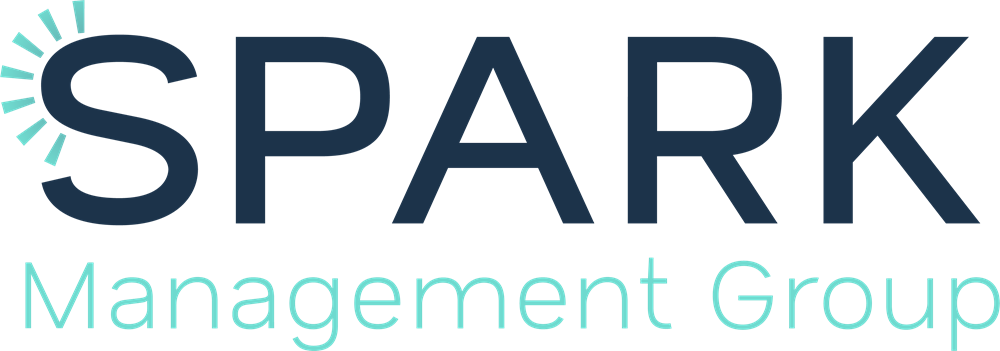Getting into the world of B2B sales can be a pretty rewarding career move. But before landing that dream role, it’s important to understand just how much impact a B2B sales representative has in building relationships between businesses and helping them grow. It’s not just about selling products or services; it’s about creating connections, solving problems, and keeping clients coming back. And let’s be honest, there’s a lot of competition out there. If you want to stand out from the crowd, you need to be prepared.
In this article, we’ll go over ten actionable tips that can help you ace your application for a B2B sales rep position. From understanding the role to nailing that follow-up after an interview, this guide will help you every step of the way.
MAIN POINTS
- Understand the B2B sales role and its focus on relationship-building.
- Research the company and industry to tailor your application effectively.
- Highlight soft skills and use metrics to showcase your achievements.
- Prepare for behavioral interview questions using the STAR method.
- Follow up after the interview to show professionalism and enthusiasm.
1. Understand the Role of a B2B Sales Representative
The first thing you need to do before applying for a B2B sales role is to really understand what the job entails. B2B stands for business-to-business, which means you’ll be selling products or services to other businesses, not individual consumers. This is different from B2C (business-to-consumer) sales, where the goal is more about catching a customer’s attention quickly and making a sale.
B2B sales are all about building strong relationships, and that takes time, trust, and the right approach. A successful B2B sales rep needs to have skills like strong communication, negotiation, and the ability to adapt to different situations.
You’re not just making a sale; you’re showing businesses how your product can solve their problems or make their lives easier. That’s why taking the time to learn the role in-depth is so important—it’ll help you determine whether it’s the right fit for you, and it’ll help you tailor your application accordingly.
2. Research the Industry and Company
Once you’ve got a good handle on the role, it’s time to dig into the industry and the specific company you’re applying to. Whether the company works in telecommunications, consulting, or manufacturing, knowing the industry landscape helps show that you’re serious about the job. You need to know who their competitors are, what challenges the industry is facing, and what trends are shaping the future.
This kind of research doesn’t just make you look good—it’ll also help you decide if it’s an industry you actually want to be part of. On top of that, get familiar with the company’s services, especially if they focus on things like face-to-face marketing or customer acquisition.
Understanding their approach, along with the expectations set in a b2b sales representative job description, will help you speak directly to their needs during the application process. In interviews, being able to mention specific details about the company shows that you’ve done your homework and that you’re genuinely interested in being part of their mission.
3. Tailor Your Resume and Cover Letter for the Role
The job market is competitive, and the last thing you want is for your resume to get lost in the pile because it looks generic. A cookie-cutter resume might work for some, but if you really want to stand out, you’ve got to personalize it for each application.
Take a close look at the job posting, and make sure your resume and cover letter highlight the skills they’re looking for. If the role emphasizes brand recognition or managing customer relationships, make sure those points shine on your resume. It’s also important to quantify your accomplishments.
Instead of saying you’re a “great salesperson,” share specific achievements—like “increased customer retention by 15%” or “boosted sales by $30,000 in Q4.” Using metrics makes your accomplishments more tangible and impactful.
4. Highlight Soft Skills That Matter in B2B Sales
B2B sales aren’t just about closing deals—it’s about building lasting connections, and that means soft skills are just as important as sales experience. Active listening, problem-solving, and effective communication are key.
For example, in B2B sales, you’ll often have to listen carefully to a client’s needs and figure out the best way to meet those needs with your company’s services. That’s why active listening can be just as important as knowing how to pitch. You want to make sure these soft skills come through in your resume and during interviews.
If you’re writing a cover letter, you could include an example of how you solved a problem for a client by really listening to what they needed. During an interview, always have examples ready to demonstrate these skills.
5. Prepare for Behavioral and Role-Specific Interview Questions
Let’s talk interviews—specifically, the kind of questions you might get in a B2B sales interview. Expect questions meant to dig into how you’ve handled specific situations in the past.
Questions like, “Describe a time you overcame an objection from a client,” are pretty common, and they’re meant to assess how well you can handle challenges. The best way to tackle these questions is to use the STAR method (Situation, Task, Action, Result).
This helps you tell a clear and concise story about how you approached a problem and what the outcome was. Relating your answers back to traditional marketing techniques—like how you used face-to-face interactions to win over a hesitant client—can help show that you know your stuff.
6. Showcase Your Understanding of the Sales Process
When you’re applying for a B2B sales representative role, you need to know the sales process inside and out. From prospecting and lead generation to closing deals, a good understanding of this process can make a big difference in your application.
During interviews, be prepared to discuss how you would move a client through each stage—whether it’s building interest, addressing objections, or ultimately closing the sale. If you’ve had experience in customer acquisition or retention in previous roles, now’s the time to bring that up.
Showing you understand how to maintain relationships after the sale is done—and why that’s just as important as closing the deal—will make you stand out from other candidates.
7. Demonstrate a Strong Understanding of Relationship-Building
One of the biggest tasks of B2B sales is building and maintaining strong relationships. Businesses want to work with people they trust, and that trust doesn’t happen overnight. It’s built through ongoing communication and a real effort to understand a client’s needs.
When applying for a B2B sales representative position, be sure to emphasize your ability to develop and nurture these relationships. Whether it’s in your resume or during an interview, providing specific examples of how you’ve built lasting relationships with clients can help you stand out.
You could mention how you went the extra mile to solve a client’s problem or how you followed up regularly to make sure they were satisfied. Personalized outreach and consistent follow-ups are key to success in B2B sales.
8. Highlight Adaptability and a Growth Mindset
Adaptability is a big deal in the world of sales. Industries change, client needs shift, and being able to roll with the punches will set you apart from other candidates. Companies want to hire people who are open to learning and able to adjust when necessary—someone who can take feedback, apply it, and get better at what they do.
If you’ve taken any training courses or workshops to improve your sales skills, bring those up during your application. This shows that you’re committed to personal growth, and that’s something every hiring manager loves to see.
Whether it’s learning a new direct sales technique or improving your ability to handle objections, showcasing your adaptability will help make your application stand out.
9. Show Confidence and Authenticity During the Interview
Interviews can be nerve-wracking, but showing confidence—while staying authentic—goes a long way. The key is to be prepared. Go into the interview with a clear idea of what you want to say, but don’t be afraid to let your personality shine through.
Role-play scenarios are pretty common in B2B sales interviews, so be ready for that. Practice these scenarios with a friend if you can. It’ll help you get comfortable thinking on your feet, which is exactly what you’ll need to do on the job.
And when it comes to confidence, remember that it’s okay to admit when you don’t know something. It’s better to be honest than to fake it. Just make sure to emphasize that you’re willing to learn whatever you need to know. That’s where authenticity and a positive attitude can really shine.
10. Follow Up Professionally After the Interview
After the interview, don’t forget to follow up! It’s a small gesture, but it makes a big difference. Sending a thoughtful follow-up email shows that you appreciate the interviewer’s time and that you’re still very interested in the role.
Keep it short and to the point, but make sure to reinforce why you’d be a great fit for the position. Mention something specific from the interview that you enjoyed or found interesting.
This not only helps you stand out but also reinforces the idea that you’re genuinely excited about joining the team. Following up professionally is all about showing respect and enthusiasm, both of which are qualities any employer would value.
Final Thoughts
Applying for a B2B sales representative position doesn’t have to be overwhelming if you take the time to prepare properly. By understanding the role, tailoring your application, highlighting your skills, and being genuine in your interactions, you can set yourself up for success. Remember, the more effort you put into preparing and presenting yourself, the better your chances of standing out from the competition. So, go in with confidence, use these tips, and get ready to land that B2B sales role!
Take the Leap Toward a Rewarding Sales Journey
Your next big opportunity in B2B sales awaits at Spark Management Group. Equip yourself with the right skills, join a team that values growth, and start building lasting connections that make a real difference. Let us help you shape a successful and impactful career. Contact us to get started today!

